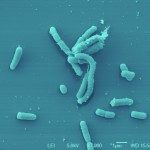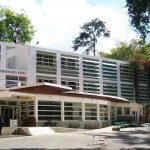Congratulation to Christian Demeure (Department of Microbiology, Jean-François Zagury (CNAM), Minoarisoa Rajerison (Unité Peste, IP Madagascar) and Mathieu Schoenhals (Unité Immunologie, IP Pasteur) whose project “PLAGMAB” will be financed by the Agence National de la Recherche in its 2021 Projet de Recherche Collaborative call.
Development of monoclonal antibodies using memory B cells from plague survivors, specific to protective epitopes
Yersinia pestis, the etiologic agent of Plague, is among the deadliest pathogens affecting humans. Mostly transmitted by fleas, it causes bubonic Plague, but lung infection may subsequently occur leading to aerosols causing the deadly and highly contagious pneumonic form of Plague. Plague affects a rodent reservoir in large areas of Asia, Africa and the Americas, where human cases are declared every year. Madagascar has the highest case record in the world. Antibiotherapy is usually efficient but multi-resistant strains have been described. One could easily collect and amplify them in vitro, and due to its high contagiousness and lethality,Y. pestis is considered as a potential bioterrorist weapon. In the absence of an available vaccine, antibiotherapy cannot be considered a sufficient safeguard.
Antibody-based therapies are more and more used in medicine: oncology, autoimmune diseases, and microbial infections. As recently confirmed for COVID-19, they constitute an efficient prophylaxis or treatment opportunity that could be used for Plague notably in case of multi-resistant strains. The present project aims at identifying the immune correlates of infection in healed Plague patients by the fine characterization of their B and T cell epitopes associated to protection and using this information to produce monoclonal antibodies (mAbs) protective against Plague that will reinforce the therapeutic or preventive options to face Plague.
Our project is made possible by the unique situation of Pasteur Institute in Madagascar (IPM) that has a direct access to Plague patients. The Plague unit at IPM and the Yersinia unit in Paris have joined their forces in a “Pasteur International Unit“ (PIU), leader of this project. The Plague unit at IPM has developed for years a unique library of samples from healed Plague patients with various clinical outcomes (>1500 samples, sera and PBMCs). Subjects with a strong and potentially protective immunity against Plague will first be selected from indicative clinical outcomes such as spontaneous recovery, asymptomatic seroconversion, or high antibody response in follow-up serological tests. The virulence of Y. pestis completely depends on adhesin-dependent contact with target cells and injection of lethal Yop toxins. To further precise the protective value of patient’s sera, we will test in vitro their ability to neutralize this Y. pestis’ essential cytotoxicity process. Groups of patients with either high or low protective Abs will thus be defined.
We plan to map finely the B cell epitopes from 8 critical proteins of Y. pestis using ELISA chips (peptide-coated micro-arrays, JPT technology, Berlin) and characterize the protective epitopes. The 8 chosen surface proteins have a known role in host cell killing, are accessible and can thus potentially be blocked by Abs. The serological responses of 50 protected, 50 sick, and 30 uninfected subjects against peptides covering these proteins will be compared, allowing to discriminate the B cell epitopes linked with protection (i.e. with a therapeutic potential).
MAbs targeting these epitopes will be produced from healed patients’ PBMCs using a well-established protocol. They will then be tested in vitro with a Y. pestis neutralization assay, and the best candidates will be validated in murine models of bubonic and pneumonic Plague.
Thanks to the availability of Plague patients’ cells and of the peptides, we will also characterize the protective T cell epitopes using ELISPOT. Such an exhaustive mapping of B and T cell epitopes has never been performed before for Y. pestis antigens. In addition to the development of therapeutic Abs, this project will thus be useful for future vaccine development. The two partners gather all the necessary expertise in the biology and field epidemiology of Y. pestis, in immunology, and in bioinformatics for the successful completion of the project.


